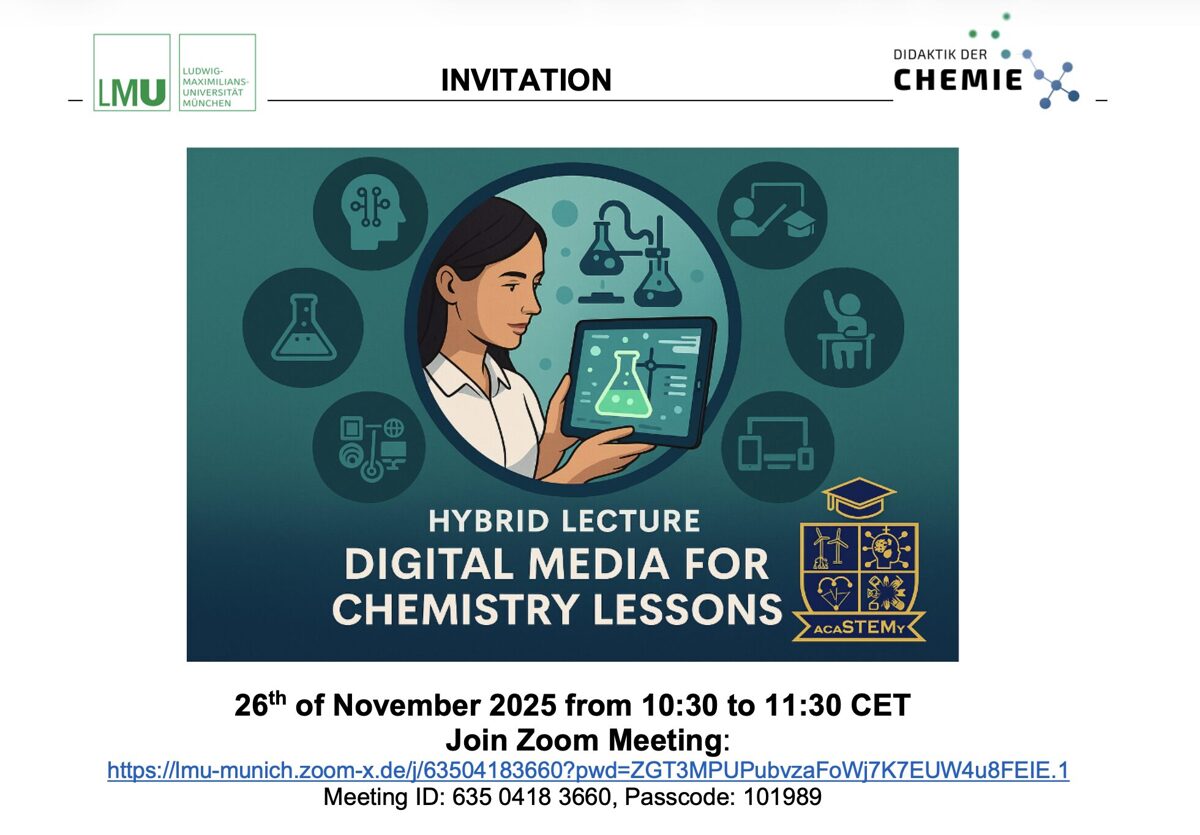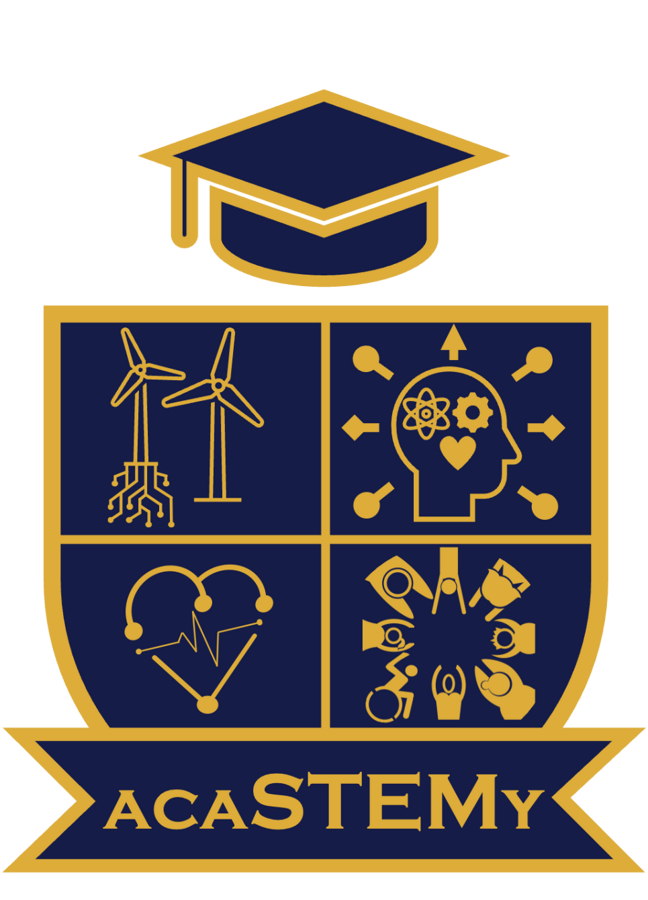acaSTEMy 6th hybrid seminar "Digital Media for Chemistry Lessons" - 26th of November 2025 from 10:30 to 11:30 CET
LMU, member of acaSTEMy Erasmus+ teacher academy, organize and invites you to 6th acaSTEMy hybrid seminar.
This hybrid lecture explores how digital media can be purposefully and pedagogically integrated into chemistry teaching. Aimed at pre-service and in-service chemistry teachers, it starts from the guiding question “Why do we need digital media in chemistry lessons?” and discusses the educational and professional expectations for teachers in light of the ongoing digital transformation in schools.
The session examines what digital media are and how they can enrich the teaching and learning of chemical terminology, representations, and experimental methods. Drawing on Mayer’s Cognitive Theory of Multimedia Learning and Sweller’s Cognitive Load Theory, it highlights key cognitive and design principles that support effective learning and help balance mental effort in multimedia-based instruction.
Frameworks like SAMR and ICAP help reflect on technology use and learner engagement, emphasizing that the best approach depends on learning goals, student needs, and material complexity. Teachers are encouraged to choose and adapt digital tools thoughtfully to maximize learning effectiveness for each situation.
Using Augmented Reality (AR) as an illustrative example, the lecture demonstrates how digital tools can enhance visualization and understanding of submicroscopic, macroscopic and representative levels in chemistry. Altogether, it provides practical insights for designing pedagogically sound and cognitively oriented digital learning environments in chemistry education.
Speaker: Dr. rer. Nat. Melanie Ripsam
Melanie Ripsam is a Research and Teaching Associate in Chemistry Education at Ludwig-Maximilians-Universität Munich. Her research focuses on teaching and learning in chemistry, with particular interest in fostering students’ understanding of the substance–particle concept and supporting the use of chemical language through (multiple) external representations, especially in digital learning contexts. She investigates how technologies such as augmented reality (AR) and artificial intelligence (AI) can promote scientific thinking and inquiry-based learning in chemistry. Her research aims to identify effective strategies for designing digital chemistry lessons and to support both pre- and in-service teachers in implementing meaningful digital instruction. Prior to joining LMU, she contributed to the DigiProMIN project at the Technical University of Munich (TUM), where she developed and evaluated professional development programs for science teachers.
Zoom Meeting Link:
https://lmu-munich.zoom-x.de/j/63504183660?pwd=ZGT3MPUPubvzaFoWj7K7EUW4u8FEIE.1
Meeting ID: 635 0418 3660, Passcode: 101989

